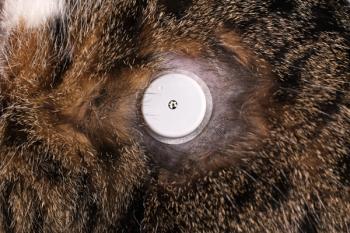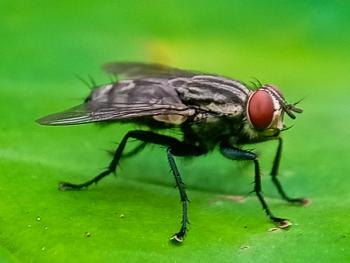
Q&A: Spotlight on spot-on parasite preventives
Recent EPA reports may mean your clients are struggling to sort fact from fiction about spot-on parasite preventives. Here's what you need to know to educate pet owners about how to safely and effectively use spot-on parasite preventives.
The circumstances resemble a Greek tragedy: The treatment meant to safeguard pet health leads to a dangerous—perhaps even life-threatening—adverse reaction. The plot twist: There's a happy ending.
The story begins in 2009 after the Environmental Protection Agency (EPA) received a higher number of reports about dogs and cats suffering from adverse reactions to spot-on parasite-control products. The EPA responded by conducting a yearlong safety review of the products, subsequently recommending stronger label warnings, public education, and increased monitoring for adverse events.
The EPA's plan should help, but it doesn't go far enough, according to the Companion Animal Parasite Council (CAPC). One of CAPC's key objections is that the EPA won't be looking into whether spot-on parasite products were purchased and applied under the direction of a veterinarian. This is important because the most common cause of pets experiencing an adverse reaction to these products is simple human error. To put it bluntly, pet owners often fail to read the product instructions and properly apply the spot-on treatment.
The good news is that you're perfectly positioned to let clients know they shouldn't fear parasite prevention products. In fact, stopping the use of parasite preventives exposes cats and dogs to the possibility of being infested by fleas and ticks, which spread dangerous illnesses such as Lyme disease and ehrlichiosis. These parasites can also cause debilitating allergic reactions and secondary infections in many pets. To help end this tale with a "happily ever after," be prepared to answer these client questions about spot-on parasite preventives for pets.
Q: Should I worry about the safety of my pet's parasite preventive?
The short answer: No. Julie Sontag, AAT, RVT, a veterinary technician at Clairmont Animal Hospital in Decatur, Ga., says you should explain to pet owners that parasite-prevention products are safe when used according to the label for the correct species and pet weight. "It's safe to use products recommended by your veterinary professional if you follow the label directions," Sontag says. "Directions and warnings are printed for a reason and shouldn't be ignored."
Go on to address with clients the importance of choosing the right preventive. "Each product is designed for different species and different weight classes," Sontag says. The spot-on products designed for dogs are dangerous for cats—and vice versa. Also outline that it's imperative to apply the preventive correctly. Using spot-on products too often could threaten the pet's health. Finally, remind clients that companies have thoroughly researched and tested their products before they enter the veterinary market, Sontag says.
Q: Why should I buy my parasite preventive from a veterinarian instead of a pet store?
As with any medication, if spot-on parasite preventives are used incorrectly, adverse reactions could occur. To ensure pet owners purchase the appropriate product, apply it correctly, and receive expert answers to questions, they need to turn to their veterinary team, Sontag says. "Veterinary professionals pick the product that's the most convenient for the client and the best fit for the pet," she says. "Veterinarians consider the pet's lifestyle and medical history. Also keep in mind that some manufacturers only guarantee their product when purchased through a licensed veterinarian."
Q: How effective are spot-on products?
Effectiveness depends on proper application, frequency of application, and the pet's environment. Make sure pet owners know this—and understand that the products work. "We decide which products will be the most beneficial for our clients' pets, and clients like to know that we use those same products on our own pets," Sontag says.
Be sure to talk about the importance of applying the products correctly. Let clients know that using them improperly or irregularly can make spot-on parasite preventives ineffective. For example, some products are waterproof. But these same products are distributed by oils on the body, and bathing can deplete these oils. To ensure maximum distribution and effectiveness, Sontag says it's important to remind pet owners to apply the product several days before or after bathing.
Also address the need to use these products at regular intervals year-round. Some clients may say their pets became flea-infested while using a spot-on parasite-prevention product. However, you may learn that the product wasn't applied regularly or was stopped during colder months, allowing fleas to return.
The EPA warning might cause confusion and apprehension among your clients, but you should look at it as a positive opportunity to ease pet owners' fears and explain the importance of proper use of parasite preventives. "Our clients look to us for answers and recommendations," Sontag says. "They look to the Internet and unreliable sources when we don't provide education. As veterinary professionals, we took an oath to provide the best care possible and to do no harm. And we must continue to educate ourselves so we can continue to educate our clients and offer high-quality healthcare for pets."
Portia Stewart is a freelance writer and former Firstline editor living in Lenexa, Kan.
Newsletter
From exam room tips to practice management insights, get trusted veterinary news delivered straight to your inbox—subscribe to dvm360.






